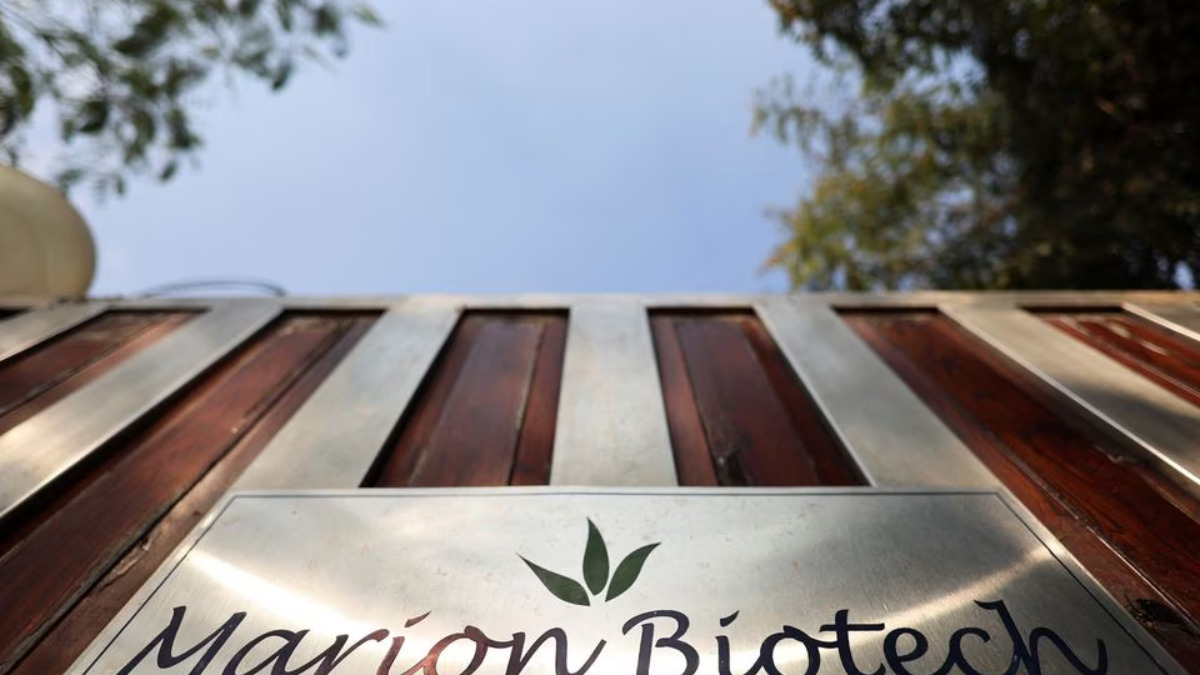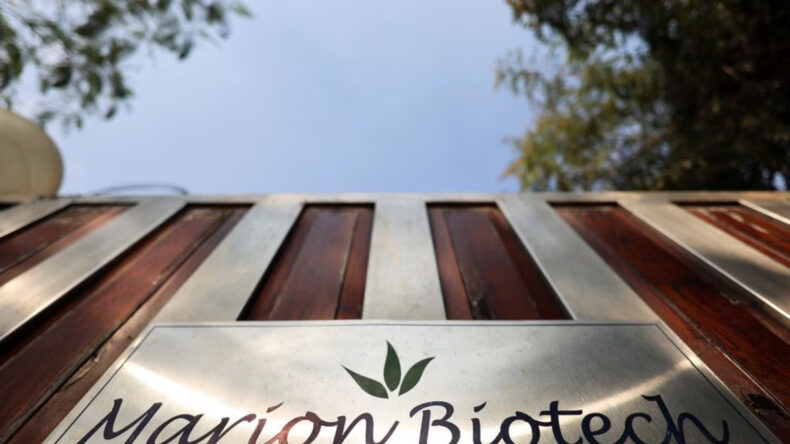According to an online news agency, the Indian manufacturer of cough syrups that Uzbekistan accused of poisoning 19 children last year reportedly used a toxic industrial-grade ingredient instead of the authorized pharmaceutical version. Two sources familiar with the situation revealed this information.

The Indian manufacturer of cough syrups, Marion Biotech, reportedly procured propylene glycol (PG) as an ingredient from trader Maya Chemtech India, as reported by an online media agency. However, Maya Chemtech lacked the license to sell pharmaceutical-grade materials and exclusively dealt with industrial-grade substances, according to an anonymous source familiar with the Marion investigation.
The source revealed that they were unaware of Marion’s intention to utilize the propylene glycol in the production of cough syrups, stating, “We did not know Marion was going to use it to make cough syrups.” Additionally, the source mentioned that they were not informed about the specific application of their supplied material.
According to two sources with knowledge of the matter, the cough syrup produced by Marion was made using industrial-grade propylene glycol, which is a toxic substance commonly employed in liquid detergents, antifreeze, paints or coatings, and as an additive to enhance the effectiveness of pesticides.
A second source, an investigator involved in the ongoing inquiry, stated, “Marion bought commercial-grade propylene glycol,” adding that they were expected to use Indian Pharmacopoeia-grade propylene glycol, adhering to the national standards for pharmaceutical product composition.
The investigator further revealed that Marion did not conduct tests on the ingredient before incorporating it into the syrups sold to Uzbekistan. In India, the drugs and cosmetics rules place the responsibility on manufacturers to ensure the safety of the ingredients they utilize.
Maya Chemtech is currently not facing any charges, as per the company source, although the investigation remains ongoing. Deepak Sharma, an Assistant Drugs Controller based in the national capital territory of Delhi, where Maya Chemtech is located, declined to comment, citing the federal drugs authorities’ ongoing investigation.
Marion, which claims to be involved in the production of pharmaceuticals, herbal products, and cosmetics, has previously denied any wrongdoing. Both the company and India’s drug regulator and health ministry did not respond to requests for comment.
An analysis conducted by Uzbekistan’s health ministry last year revealed that the Marion-manufactured cough syrups, namely Ambronol and DOK-1 Max, contained excessive amounts of toxins diethylene glycol (DEG) and ethylene glycol (EG), which are not suitable for human consumption and are used in non-consumable products.
In January, Uzbekistan arrested four individuals, including two executives from a company that imported the Marion drugs, in relation to the 19 deaths. The current status of the case could not be determined, and Uzbekistan’s health ministry did not respond to inquiries regarding potential penalties.
Syrup, Spurious and Aduleterated
According to experts in pharmaceutical manufacturing, unscrupulous actors have been known to use diethylene glycol (DEG) and ethylene glycol (EG) as substitutes for propylene glycol due to their lower cost.
The World Health Organization (WHO), as reported by an online media agency, stated earlier this month that its working theory is that in 2021, during a period of increased propylene glycol prices, one or more suppliers may have mixed the cheaper toxic liquids with the legitimate chemical.
When asked for comment on the ingredients used by Marion, a WHO spokesperson emphasized the importance of product manufacturers only sourcing from appropriately qualified suppliers.
In January, tests conducted by an Indian government laboratory found that 22 samples of cough syrups manufactured by Marion were “adulterated and spurious,” as stated by the country’s drug controller in March.
In March, authorities in the state of Uttar Pradesh, where Marion is located, revoked Marion’s license. Three of the company’s employees were arrested, and warrants were issued for the arrest of two directors. The three employees have since been released on bail, according to Uttar Pradesh police officer Vijay Kumar.
One of the employees, Tuhin Bhattacharya, who held the position of operations head, claimed to have ceased working for Marion, although this could not be independently verified by the online media agency. Efforts to contact the other two employees, chemists Mool Singh and Atul Rawat, as well as their lawyers, were unsuccessful.
In April, a lawyer representing the two Marion directors informed the Allahabad High Court that the drugs were found to be “not of standard quality” but not adulterated. The lawyer argued that the directors had not committed any offense in India since the drugs were exclusively meant for export, according to a court order reviewed by the online media agency.
The court ruled that the directors, Jaya Jain and Sachin Jain, should not be arrested unless they were convicted. The lawyer representing the directors, Rohan Gupta, did not respond, and attempts to reach the directors themselves were unsuccessful.
In March, India’s drug regulator instructed the country’s drug manufacturers not to purchase propylene glycol from Maya, as reported by the online media agency.
Standards
In addition to the fatalities in Uzbekistan, a different Indian company’s cough syrups were found to be contaminated with toxins, resulting in the deaths of at least 70 children in Gambia last year. Similarly, tainted cough syrups made in Indonesia were associated with the deaths of over 200 children in that country.
These tragic incidents triggered an international investigation into the pharmaceutical supply chain.
International standards permit only minimal levels of ethylene glycol (EG) and diethylene glycol (DEG) in pharmaceutical-grade propylene glycol. The limits for industrial or commercial-grade propylene glycol are less strict, as they are not intended for human consumption.
The contaminated cough syrups that caused the deaths in Gambia were exported by another Indian company, Maiden Pharmaceuticals. The World Health Organization (WHO) linked these syrups to the fatalities, although Maiden has denied any wrongdoing.
In June, Gambia informed India’s drug regulator that starting from July 1, it would require all pharmaceutical products from India to undergo inspection and testing within India at the expense of the Indian exporter before shipment. This represents the first known instance of restrictions on national exports in response to the deaths associated with Indian-made syrups.
From June onward, India implemented a mandatory requirement for companies to subject their cough syrups to testing before export.













